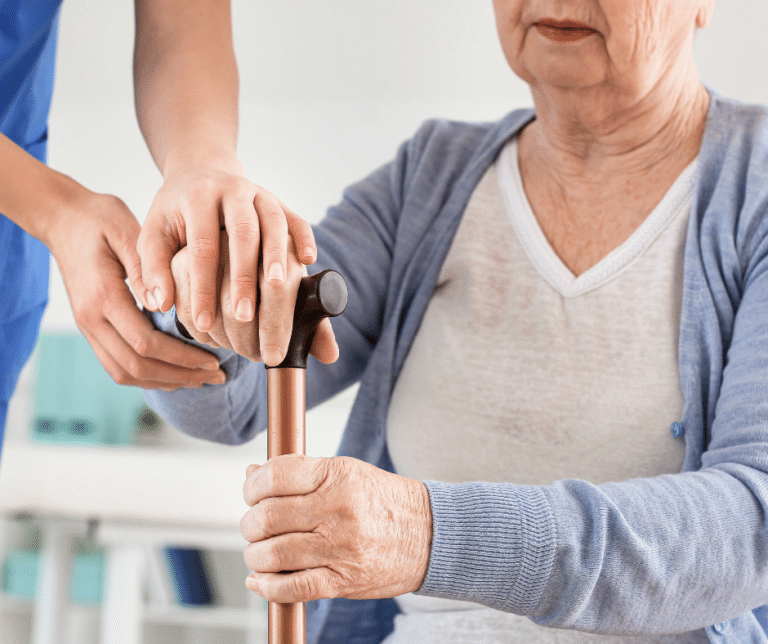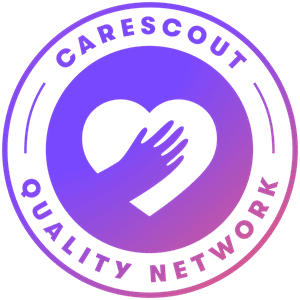Parkinson’s disease is a progressive neurological disease that impairs movement, making daily tasks difficult. For seniors, the symptoms can be tough to manage, but early awareness can improve quality of life. With the help of home care, their medical team, and loved ones, seniors can better manage Parkinson’s by recognizing symptoms and focusing on management.
Understanding Parkinson’s Disease
Parkinson’s disease occurs when certain nerve cells in the brain that produce dopamine begin to break down or die. Dopamine is a neurotransmitter that controls movement, emotion, and coordination. Parkinson’s symptoms occur when dopamine levels drop, making brain movement control harder.
Common Parkinson’s Symptoms
Parkinson’s symptoms vary from person to person. Additionally, they tend to progress slowly, which might make them harder to recognize. This is where home care and loved ones can help out by monitoring seniors for any possible signs of the disease. Common symptoms include:
- Tremors: Uncontrollable shaking of the hands or fingers is a hallmark of Parkinson’s disease. The hand tremor usually appears at rest and improves with purposeful movement.
- Bradykinesia: Parkinson’s can make it harder to do ordinary tasks like buttoning a shirt or walking. This might be particularly evident when watching seniors as they begin movements since it makes motion harder to start or control due to stiffness or latency.
- Stiffness: Rigid and stiff muscles make movement difficult and uncomfortable. This rigidity can also affect posture, making walking and sitting uncomfortable.
- Balance Issues: Parkinson’s can impact balance and coordination, making seniors more likely to fall. Balance issues can also make standing and walking harder, increasing injury risk.
- Difficulty Speaking or Writing: Speech may become softer or slurred, and handwriting can become small and cramped. These changes can be frustrating for seniors as they make communication more difficult.
Managing Parkinson’s Disease
Even while Parkinson’s progresses, there are things that seniors can do to control symptoms and enjoy daily life, especially when they are supported by home care and loved ones.
- Medication Management: Parkinson’s treatment relies on brain dopamine-boosting medications. Levodopa regenerates brain dopamine and is the most widely given medicine. Other medications may be prescribed to help with tremors, muscle stiffness, and movement.
- Exercise and Movement: Even with Parkinson’s, regular exercise can help seniors retain mobility, balance, and strength. Easy exercises like walking, swimming, and yoga may tone and flex muscles. Physical therapy can also be helpful, as it focuses on targeted movement and balance exercises.
- Assistive Devices: Due to Parkinson’s mobility issues, assistive devices can simplify daily tasks. Canes, walkers, and grab bars at home can avoid falls and improve mobility. Seniors with tremors or stiff hands might also find eating and dressing easier with larger-grip utensils or button hooks.
- Healthy Eating: A balanced diet of fruits, vegetables, complete grains, and lean proteins promotes health. It’s important to note that Parkinson’s medications might cause nausea or stomach issues. If seniors find it difficult to eat, they should be encouraged to talk with their medical team.
- Occupational and Speech Therapy: Seniors with Parkinson’s can improve their vocal projection and swallowing with speech therapy. Along with this, they can learn tips and tricks to help them dress, eat, and write through occupational therapy.
Though Parkinson’s disease might be difficult, seniors can live independently and happily with the correct support. Home care and loved ones can watch for signs of the disease to ensure early detection and encourage seniors with the disease to incorporate the tips above and follow their medical team’s advice for the best outcomes.
If you or an aging loved one are considering Home Care in Columbus, NE, please contact the caring staff at Caretech today at (402) 697-5121
Caretech provides the best care services for seniors and families throughout Nebraska including Omaha, Lincoln, Bellevue, Grand Island, Kearney, Fremont, Norfolk, Hastings, Columbus, Papillon, North Platte, La Vista, Scottsbluff, South Sioux City, Beatrice, Lexington, Chalco, Gretna, Gering, York, and surrounding areas.
- 24-Hour Home Care in Scottsbluff: Trusted Support When You Need It Most - May 29, 2025
- How to Become a Respite Care Provider and Support Families in Need - May 27, 2025
- Services for Older Adults Living at Home - May 23, 2025







